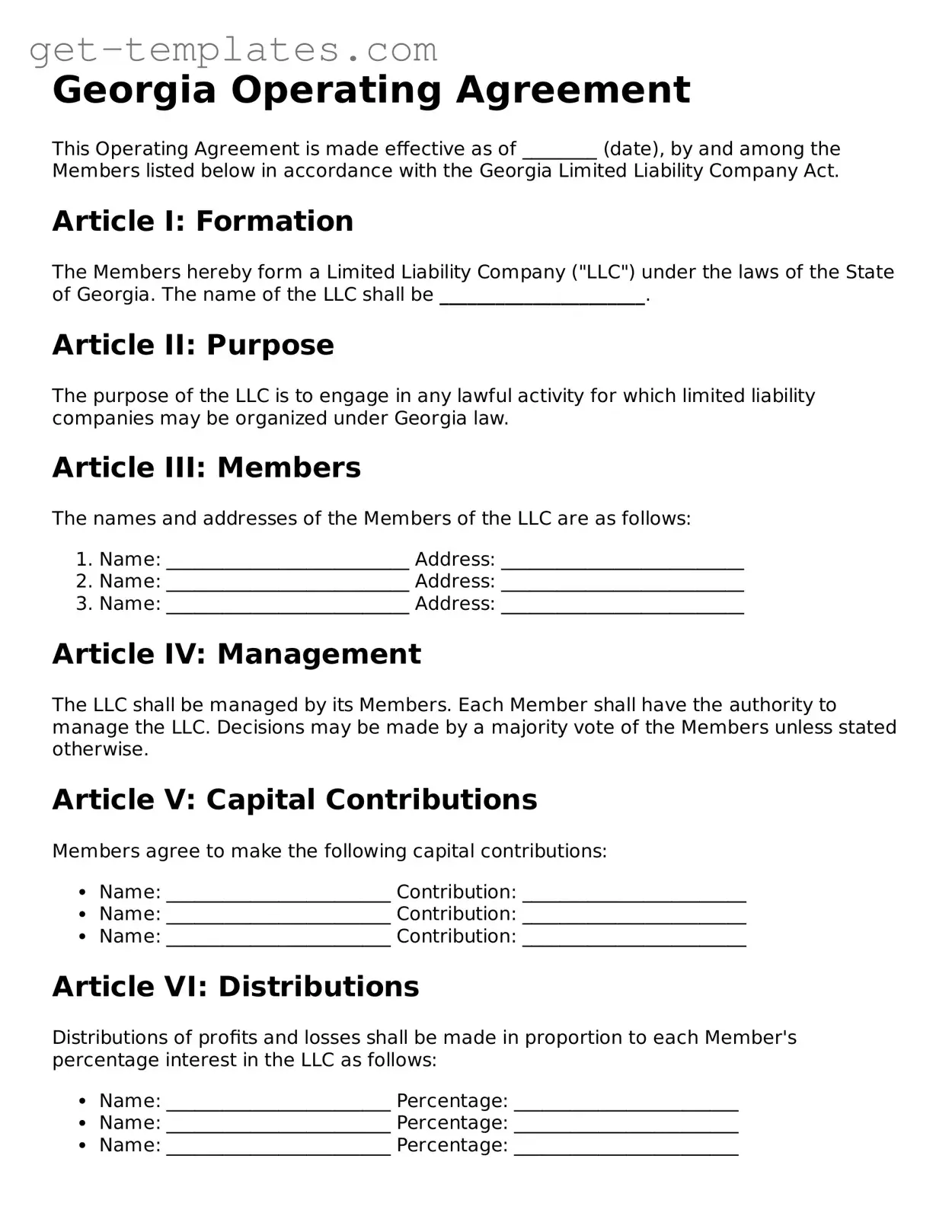Attorney-Approved Operating Agreement Document for Georgia
The Georgia Operating Agreement form is a crucial document that outlines the management structure and operating procedures of a limited liability company (LLC) in Georgia. This agreement helps define the roles and responsibilities of members, ensuring clarity in operations. By establishing clear guidelines, the form aids in preventing disputes and promotes smooth business functioning.
Get Document Online

Attorney-Approved Operating Agreement Document for Georgia
Get Document Online
You’re halfway through — finish the form
Finish Operating Agreement online — edit, save, download made easy.
Get Document Online
or
⇓ PDF Form
